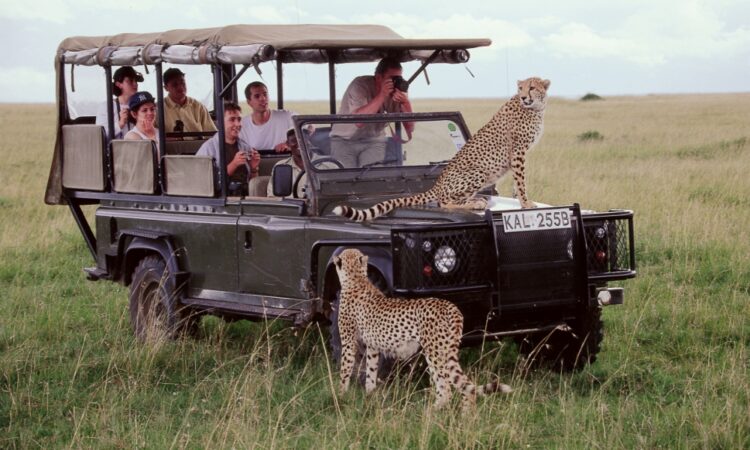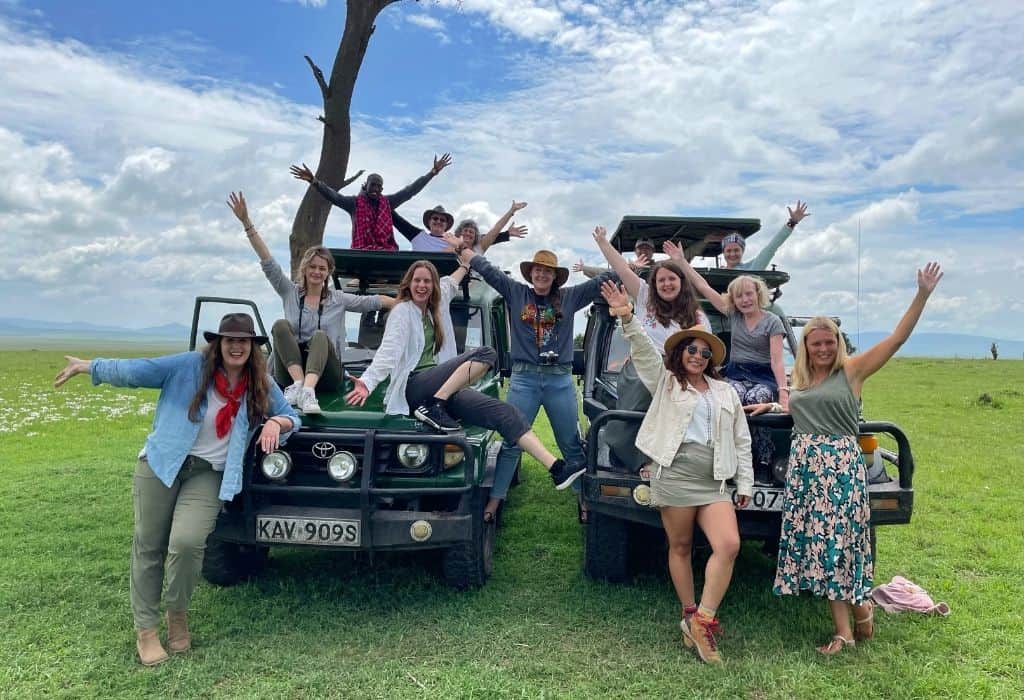New Tips On Deciding On Devil666 Slot Sites
Wiki Article
What Security And Safety Considerations Must I Be Aware Of When I Am In Mombasa?
It is crucial to keep an eye on the safety and security issues when visiting Mombasa in Kenya. This will help ensure an enjoyable and stress-free trip. Here are a few important things to remember.
1. General Security
Stay informed: Keep abreast with local news as well as any travel warnings issued by your home country.
Register with Your Embassy: If you are able to, register with your embassy or consulate in Kenya to assist you in case of an emergency.
2. Health Precautions
Immunizations - Make sure you've received all your routine vaccinations. Also, consider getting additional vaccines for Hepatitis-A, Hepatitis-B, Typhoid Fever as well as Yellow Fever.
Mombasa's malaria has become endemic. Utilize antimalarial medicine, insect repellents. Sleep under mosquito nets. Wear long sleeves.
Food Security and Water Drink boiled, bottled or cooked water. Avoid the use of ice. Foods sold on the streets should be avoided.
3. Personal Security
Avoid Walking Alone at Night Be sure to stay in areas that are well-lit and well-populated. Avoid walking in the dark on beaches or in remote areas.
Hotel safes are an excellent option to store valuables such as passports and money. Avoid displaying expensive products like electronics or jewelry.
Use Reputable Transportation: Choose certified taxis or ride-hailing companies. Hotel staff can also arrange transport. Avoid cabs with no markings.
4. Local Laws and Customs
Be modest in your attire. This is particularly important when visiting religious sights. Be aware of local traditions.
The Kenyan laws on drugs are very strict and can be punished with severe penalties. Beware of using illegal drugs.
Always get permission before taking photos, especially in rural areas, and also of military or government buildings.
5. Beach and Water Safety
Swimming safely means being aware of local guidance on conditions and currents. Make sure you are in areas that are designated for swimming.
Marine Life: Be mindful of marine wildlife such as jellyfish and Urchins. Wear appropriate footwear when walking along the beach.
6. Crime Prevention
Petty Criminals. The possibility of bag snatching or pickingpocketing is possible, especially in areas with a lot of people. Keep your belongings close and be vigilant.
Scams - Beware of strangers who appear to provide too much help or deals that seem too good to be true. Use only licensed tour operators.
Keep the emergency contact numbers on hand for emergency services: Emergency contact numbers: (999) (999), Police (999) and Ambulance (9999). Contact details for the embassy and consulate of your nation should be kept in a handy place.
7. Natural Hazards
Weather: Mombasa experiences a tropical climate. Heavy rains and flooding are possible, especially during the rainy season. Forecasts for weather are crucial.
Sun Protection: Guard yourself from sunburns and heat exhaustion by wearing hats, using sunscreen, and hydrating.
8. Travel Insurance
Comprehensive coverage. Be sure that the travel insurance you purchase provides insurance for medical emergencies, theft and loss, as well as disruptions in travel. Check that your policy provides protection for any activities you are planning to undertake, such as water sports.
If you think about these safety and Security considerations, then you can have a more enjoyable holiday in Mombasa. Take a look at the most popular transfer to Diani for website tips including kenya safari and beach, africa tours, travel tour companies, kenya safaris and tours, mombasa safari packages, tour and travels, mombasa safari, african safari africa, kenya safari and beach packages, travel & tours company and more.

What Are The Weather Concerns I Should Be Aware During My Trip To Mombasa?
To make the most of your excursion to Mombasa in Kenya, it is important to know the local weather patterns. Here are the main weather considerations.
1. Climate Overview
The climate in Mombasa is tropical and humid throughout the through the year. Expect warm weather with temperatures that typically range from 24degC (75degF) to 32degC (90degF).
2. Seasons
The season of hot and humid (November toApril): During this period the temperature is high and the humidity is high. This is also the most popular tourism season, especially in December and January.
Long Rains from April to June : Heavy rainfall and storms are typical during the season of rain. It is possible for roads to become muddy. This is the off-season for tourism.
The cooler season (June-October) is ideal to travel during, as temperatures are lower and the humidity level is lower. The weather is usually pleasant and ideal for outdoor sports.
Short Rains: In this period it is a time of fewer and less severe rain showers. The rains typically last for few minutes and are followed by sunny skies.
3. Packing Tips
Lightweight clothing: To remain cool and dry in humid conditions, pack lightweight, breathable clothes such as cotton or linen.
Rain Gear - If you're traveling during the rainy season ensure you bring an outfit with a water-resistant coating, an umbrella, as well as waterproof footwear.
Sun Protection: Sunscreen that has high SPF, a wide-brimmed hat, sunglasses, and clothing that cover your skin will provide protection from the intense sun.
Swimwear: Make sure that you have your swimwear with you at all times you visit the hotel pools and beaches.
4. Weather-Specific Activities
Beach Time. The ideal time to go to the beach would be during the cooler seasons (June through October) in which temperatures are mild and the conditions on the ocean are perfect.
Water Sports To dive, snorkel and other water sports, the clear and calm waters from November to March are perfect.
Wildlife viewing: The cooler climate (June - October) makes it a better time to go on safaris or take a wildlife tour.
5. The Health Considerations
Hydration: Staying healthy is crucial in this hot, humid climate. Drink plenty of fluids particularly if you're out in the open.
Heat-related Infections: Know that heatstroke and heat exhaustion could be a possibility. Wear loose clothing and make frequent breaks in shade. Avoid intense exercise during heat peak.
6. Travel Adjustments
Traveling in the rainy season When you travel during the long rains be prepared for potential interruptions in travel. Some roads could be impassable. Outdoor activities may be restricted.
Flight Delays: Tropical rains can cause delays to flights. Stay informed about your travel schedule and have contingency plans.
7. Environmental Concerns
Natural Hazards - Be aware that heavy rain can cause flooding. Be aware of current weather conditions and follow local recommendations regarding safety.
Be aware of tides. They can vary greatly. Check tide times to ensure safety while beachcombing and swimming.
If you are aware of these weather-related considerations, you can better organize your holiday plans make sure you pack accordingly, and be safe while enjoying the time you spend in Mombasa. Have a look at the best kenya tours and safaris Wasini Watamu for blog info including safari and tours, kenya beach mombasa, kenya tours and safaris, mombasa tour packages, safari excursions, kenya mombasa holiday packages, mombasa safari packages, kenya tours and safaris, kenya beach and safari holiday, mombasa tours and more.

What Financial Planning Considerations Should I Be Aware Of When Planning A Trip In Mombasa?
Financial planning is essential when you're on holiday in Mombasa. Be aware of these factors that affect your finances:
1. Budgeting
Accommodation: Do your research and book your accommodation in advance. The cost of lodging can vary widely depending on its nature and the location.
Include costs for transportation such as taxis, flights and matatus (local transportation) and car rentals.
Food and dining: Budget for meals, including meals out and snacks. There are a variety of options, from local eateries that are cheap to high-end dining establishments.
Events and tours: Plan admission fees to the attractions, guided tours, and activities like water sports, safaris, or tours of the culture.
2. Rates of exchange and currency
Kenyan Shilling is the local currency. Be familiar with the exchange rate.
Currency Exchange: Exchanging currency is recommended to be done through trustworthy banks or exchange centers. Don't exchange money on the streets.
ATMs are available everywhere in Mombasa. Make sure that your credit card can be used for international withdrawals. Also, make sure you are aware of any charges.
3. Payment Methods
Cash: Keep some cash on you for small purchase, tipping, or other places that don't accept credit cards.
Credit cards and debit cards The majority of credit and debit cards are accepted by hotels, restaurants and retail stores of greater dimensions. Tell your bank about your travel plans in order to prevent your card from being denied access to your card.
Mobile Payments M Pesa is Kenya's most popular mobile payment system. It's a good option if you plan to use a SIM card in Kenya.
4. Save money by using these simple tips
Travel Off-Season: Traveling during the shoulder or low season (April to June, and from October to November) will save you money on airfare and lodging.
Plan ahead to secure the Best Prices on Flights, Accommodation, and Tours.
Local eateries. Go to restaurants or food stalls in your area for a more authentic, and less expensive experience.
5. Tipping
Tipping in Kenya is a standard procedure in Kenya. A minimum gratuity of 10% is expected at restaurants even if service is not included. Be sure to tip the staff at your hotel along with guides and drivers.
You can tip small amounts in local currency. Tipp porters between KES 50-100 per bag. Tipp housekeepers at least 100 kES per day.
6. Emergency Funds
Reserve funds : Make sure to have an emergency fund available and have the capability to access extra funds by debit or credit card if necessary.
Travel Insurance: Make sure you have a comprehensive travel insurance that includes medical emergencies, cancellations and loss of property.
7. The security of your own Home
Make sure your valuables are safe by using hotel safes. Place passports, other money, and other valuables inside the hotel safe. When using ATMs that are dark be extra vigilant.
Avoid Carrying large Sums. Don't bring large sums of money with you. Divide money and cards among your wallet and a secure place.
8. Local Transactions
Bargaining is commonplace at local markets. Make sure you are respectful and keep a good humor. It is important at achieving a fair price.
Keep receipts or records of all major transactions. This is useful to budget and in the case of disputes.
9. Understanding Fees
Check with your bank to see the fees related to international withdrawals. Some ATMs will charge you an additional fee if you have a foreign-issued card.
Costs of Currency Conversion Be aware of fees that your bank might charge for currency conversion if you use your debit or credit card abroad.
These financial planning tips will allow you to manage your money while enjoying a relaxing holiday in Mombasa. Check out the most popular kenya day tours for more info including africa safaris and tours, safari company kenya, afri safari, mombasa safari, trips to kenya, kenya safaris, kenya travel, kenya safari tours, kenya africa travel, afri safari and more.
